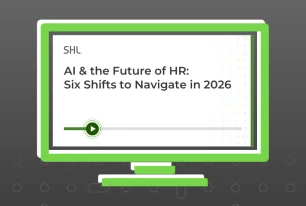Middle Managers Matter: The Hidden Risks of Cutting this Critical Layer
As organizations chase efficiency, cutting middle managers can seem tempting, but this move risks undermining performance, diversity, and future readiness. Discover why middle management is essential, especially for advancing women leaders.
Share
The pivotal role of middle management
Middle managers have been under fire recently as being an unnecessary luxury in organizations, not contributing enough in terms of either leadership or action. However good middle managers are the glue holding people and culture together, connecting strategy to execution.
While reducing middle management might seem efficient, the hidden costs are substantial. Cutting this layer too aggressively risks destabilizing performance at a time when stability is most needed. Middle managers are crucial to people-centric dynamics, fostering team cohesion and ensuring that teams remain focused, engaged, and resilient through change. As workplaces evolve through digital transformation, shifting employee expectations, and AI, the work that remains becomes more human: creative, collaborative, and complex. And it will be human qualities such as empathy, adaptability, and coaching that set great managers apart, and create conditions where people and businesses can thrive. Eliminating the roles that support this transition could severely limit an organization’s ability to realize the benefits of new technology.
In addition, the jump from a professional position to senior leadership is hard for employees to visualize when thinking about their careers, and when employees can’t see a future at their workplace, they will start to look elsewhere.
Stalling employee development and inclusion
Middle managers are often the ones who spot potential, have development conversations, and create inclusive environments where diverse talent can thrive. The World Economic Forum estimate that 22% of current jobs will be affected by structural transformation by 2030, requiring large-scale redeployment of talent to meet future needs. Without middle managers as internal mobility advocates, redeployment and transformation projects will likely fail, and organizations will lose crucial day-to-day coaching and insight.
SHL’s research into people management revealed that teams with strong people managers report significantly higher engagement and productivity. Without this layer, employees lack a representative within the organization that they can reach out to for support, leaving them disconnected and creating a broken feedback loop on performance and potential.
Women’s strengths in modern management
Beyond immediate dips in morale and retention, organizations risk losing their leadership pipelines and hindering succession planning. This disproportionately threatens the progress in developing diverse and underrepresented talent, especially women. Women excel in key leadership behaviors, particularly emotional intelligence traits like empathy, adaptability, and collaboration. These aren’t just ’soft skills,’ they’re strategic drivers of engagement, performance, and retention.
SHL’s assessment data shows women consistently outperform men in “Understanding Others” and “Team Leadership.” These skills are vital for guiding teams through uncertainty and transformation; the very challenges today’s managers are expected to tackle.
Reinvent, don’t reduce: Building resilient leadership pipelines
Instead of asking, “Which roles can we cut?” leaders should ask, “Which roles will unlock human performance in an AI-driven future?” The manager role isn’t obsolete. It’s evolving. Organizations should focus on redesigning and re-skilling middle management, equipping them to support performance, development, and internal mobility.
By using objective data to identify future leaders and reimagining manager roles to focus on people leadership, organizations can build intentional, inclusive pipelines while amplifying the strengths women and other underrepresented groups bring to the table.
Ready to future-proof your leadership pipeline?
Discover how SHL’s Manager Development solution can help you identify, develop, and empower the next generation of people managers.









